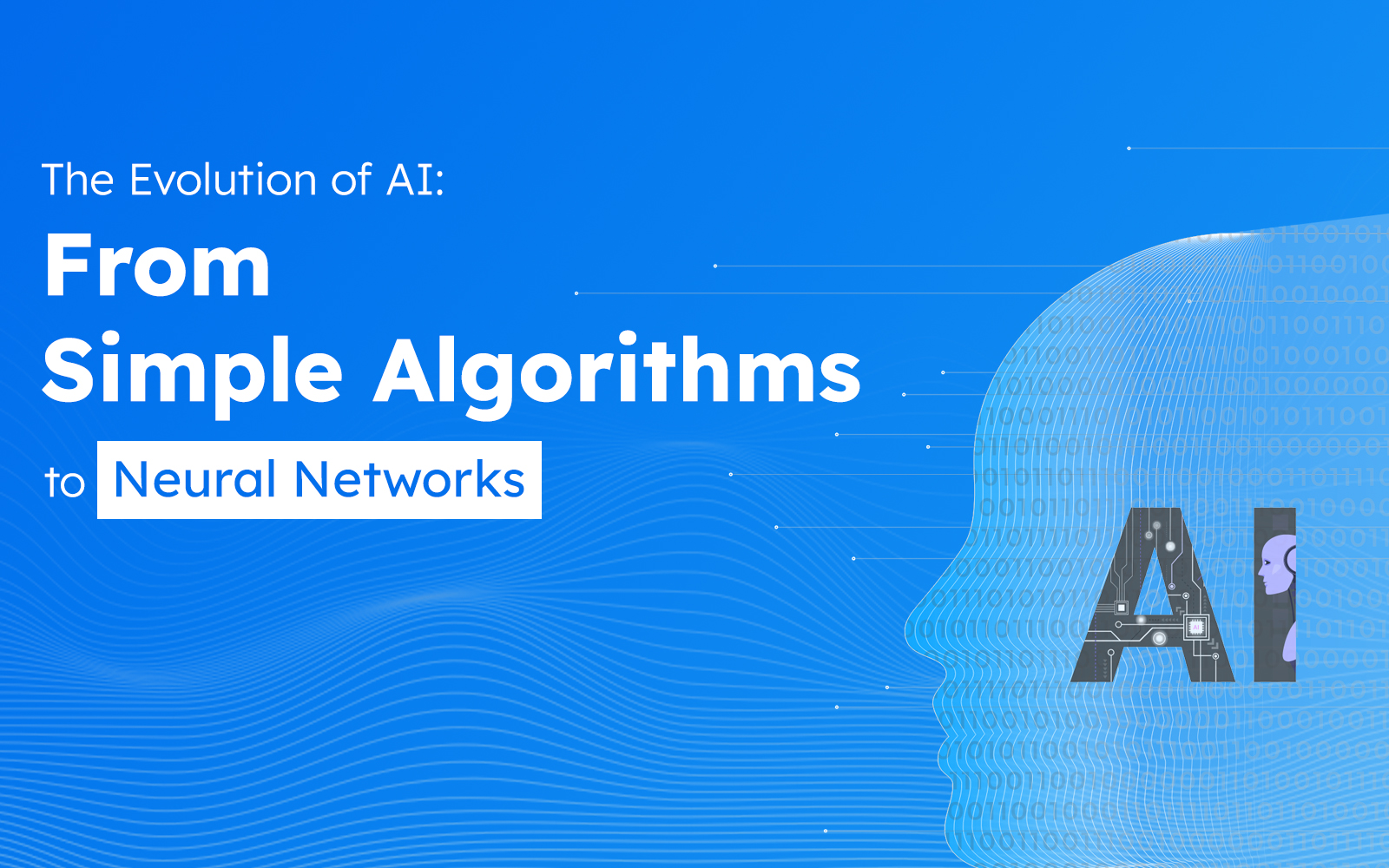The Evolution of AI: From Simple Algorithms to Neural Networks
Introduction
The journey of Artificial Intelligence (AI) is a fascinating tale of human ingenuity and technological advancement. From its inception as a mere concept to becoming one of the most transformative forces in the modern world, AI has undergone significant evolution. This blog post aims to provide a historical perspective on the evolution of AI, tracing key milestones and technologies that have shaped its journey.
Early Beginnings and AI Milestones
The history of AI dates back to the mid-20th century, marked by theoretical underpinnings and early AI systems. Initially, AI research was grounded in symbolic logic and simple algorithms, focusing on problem-solving and basic tasks. The 1950s and 1960s witnessed significant AI breakthroughs, with the development of programs like ELIZA and the Turing Test, setting the foundation for future AI technologies.
Progress in Machine Learning and Evolution of Algorithms in AI
As the field progressed, the 1980s and 1990s saw a shift towards Machine Learning (ML), marking a pivotal phase in the evolution of algorithms in AI. This era was characterized by the development of algorithms that could learn from data, paving the way for more complex and efficient AI systems. The introduction of decision trees, neural networks, and support vector machines were key developments in this period.
Rise of Neural Networks and Deep Learning Advancements
The early 21st century witnessed the resurgence of neural networks, thanks to increased computational power and data availability. This period marked the beginning of the deep learning revolution, where artificial neural networks history took a significant turn. The development of deep learning models like convolutional neural networks (CNNs) and recurrent neural networks (RNNs) facilitated breakthroughs in image and speech recognition, revolutionizing various sectors.
AI Technologies Timeline and Significant AI Breakthroughs
In the last decade, the AI landscape has been marked by rapid advancements and significant AI breakthroughs. Technologies like Generative Adversarial Networks (GANs), reinforcement learning, and transfer learning have further pushed the boundaries of what AI can achieve. The evolution of algorithms in AI reached new heights with systems capable of defeating human champions in complex games like Go and Poker.
AI Research Developments and Evolutionary Computing in AI
Concurrently, AI research developments have also explored evolutionary computing in AI, where algorithms mimic the process of natural selection. This approach has led to innovative solutions in optimization, robotics, and automated design. AI has also benefited from interdisciplinary collaborations, integrating insights from neuroscience, psychology, and other fields.
Transformative AI Technologies and Impact of AI Over Time
As AI technologies have evolved, their impact over time has been profound, influencing sectors like healthcare, finance, transportation, and entertainment. AI’s ability to process and analyze large datasets has led to transformative AI technologies that have reshaped industries and daily life. Moreover, the evolution of AI has raised important ethical and societal questions, leading to ongoing debates about its implications.
AI Revolutionary Technologies and History of Computing in AI
The AI revolutionary technologies of today are a testament to the rich history of computing in AI. From the early days of room-sized computers to the present era of cloud computing and edge AI, the technological landscape has transformed dramatically. This evolution has not only enhanced AI’s capabilities but also made it more accessible and integrated into our lives.
Conclusion
In conclusion, the evolution of AI from simple algorithms to neural networks is a story of relentless pursuit and remarkable progress in machine learning. The journey of AI is far from over, with ongoing research and developments hinting at even more groundbreaking advancements in the future. As we stand at the cusp of a new era in AI, it’s essential to reflect on this history to understand its potential and responsibly harness its power.
Recent Posts
Deep Learning Explained: Understanding the Brain Behind AI
The Intersection of AI and IoT: Creating Smarter, Connected Environments
The Evolution of AI: From Simple Algorithms to Neural Networks
The Role of AI in Sustainable Development
Scaling New Heights: Integrating Advanced Technologies in Startup Product Engineering
